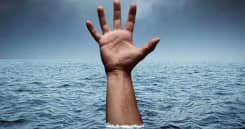Addiction affects every aspect of a person’s life, from their physical and mental health to how they structure their daily routine. Likewise, effective treatment programs encompass strategies for ceasing the use of addictive substances while embracing new life skills for an entirely new, transformed mindset.
Navigating urges and cravings, processing mental depression and anxiety, and creating a healthy lifestyle are all parts of an effective sober transformation. Practicing life skills in treatment is paramount to establishing lasting change. However, understanding the role life skills play and how an individual’s established skills may have been compromised due to addiction is important in creating a fulfilling sober future.
What Are Life Skills?
Life skills encompass a wide range of skills, strategies, and techniques that help each individual navigate daily life with an increased sense of agency. On top of grounding strategies to cope with urges or cravings, life skills like interpersonal communication strategies, critical thinking techniques, increased self-awareness, and more all play a role in establishing healthy daily routines and furthering each person’s recovery efforts.

Here are some critical warning signs that you need to take action – NOW!
More infoFor some, these skills are necessary to rebuild key relationships with family and friends. Others may practice life skills in a safe recovery environment to prepare them for use in stressful scenarios, such as job interviews, navigating difficult social interactions, and preventing relapse.
Even if a skill learned throughout recovery does not seem directly related to overcoming addiction or challenging the effects of mental health disorders, it can still play a major role in one’s overall recovery efforts. Life skills, coupled with dedicated recovery strategies and therapeutic outlets, create a truly transformative experience that can empower each individual to maintain their profound, sober changes both inside and outside of a treatment facility.
Embracing Communication Strategies
Learning to communicate has several key advantages for those in recovery. However, practicing dedicated communication strategies can be difficult. Learning to communicate with others does not always have to do with using one’s voice. While learning to verbalize difficult and complex emotions or dictate when one may need support is incredibly beneficial, communication can take other forms. These life skills can be efforts to express how each individual best communicates with others, practicing and normalizing the use of verbal, written, or artistic modes of communication.
Embracing communication strategies can help each person feel connected to others. Making an effort to journal daily, voice vulnerabilities in a safe environment, practice navigating social pressures, and learn to say “no” are all powerful skills for those recovering from addiction.
Critical Thinking Skills
Addiction has massive effects on a person’s impulsive responses. Those overcoming the use of drugs or alcohol may still be accustomed to turning to addictive substances in the face of stress or discomfort. Critical thinking skills can empower those in recovery to act under their own better judgment after analyzing and processing a scenario, rather than feeling compelled to act against their sober goals.
Regular breathing techniques can be essential to employ critical thinking strategies, allowing the mind time to acknowledge information and eliminate unhelpful assumptions. Working with peers, discussing scenarios with professionals, and even role-playing different perspectives are all powerful ways to embrace new critical thinking skills and view the challenges of addiction recovery from a new perspective.
Learning to talk through each person’s thought patterns can also be greatly beneficial, allowing each person an opportunity to hear how their thoughts may manifest in the face of stress. This can help each individual identify unhealthy assumptions and recognize self-destructive ways of thinking, empowering each person to better analyze and overcome difficult situations in accordance with their sober goals.
Self-Awareness in Recovery
Recovery is a personal journey. Practicing self-awareness is crucial for determining how each person is feeling or reacting in any given circumstance. Daily mindfulness strategies like yoga, meditation, and other spiritual practices can all birth greater degrees of self-awareness. Others may employ their own mindfulness techniques to situate themselves in the present, such as touching objects in their environment or taking deep breaths to feel their own heartbeat.
Working alongside professionals and peers to improve self-awareness is essential in building resilience inside and outside of a treatment facility. Identifying stresses and how they affect each individual is an essential skill for keeping grounded and focused on one’s sobriety, even in the face of stress, anxiety, depression, and more.

Alcohol, drugs, gambling—as many as one in eight Americans are addicted to a substance or activity to the point of self-destructive behaviour.
More infoCreating a Healthier Life
Recovery is not only about navigating the immediate effects of drugs and alcohol but making the lifestyle changes necessary to promote healthy, sustained sobriety. Life skills empower those in recovery to make these necessary adjustments and navigate the effects of addiction while building skills for a new, healthy, sober life. From providing the necessary skills to navigate interviews and social situations to focusing on each person’s own interests and assertions, actively practicing life skills throughout recovery is necessary for truly transformative change in sobriety.
Recovery is a journey, and embracing life skills in conjunction with dedicated growing and release preservation strategies is necessary for a truly transformative, holistic approach to your needs in recovery. At Hawaii Island Recovery, we understand the need to address all areas of your life to create a truly transformative, sober experience. We are committed to helping you through each stage of your personal recovery, from medical detox and residential treatment to our ongoing outpatient programs and aftercare support, all while utilizing the natural, spiritual advantages of the beautiful Hawaiian islands. For more information on how we can incorporate effective life skills into your time in our Hawaii drug and alcohol treatment centers, call us today at (866) 390-5070.
 Hawaii Island Recovery
Hawaii Island Recovery 










